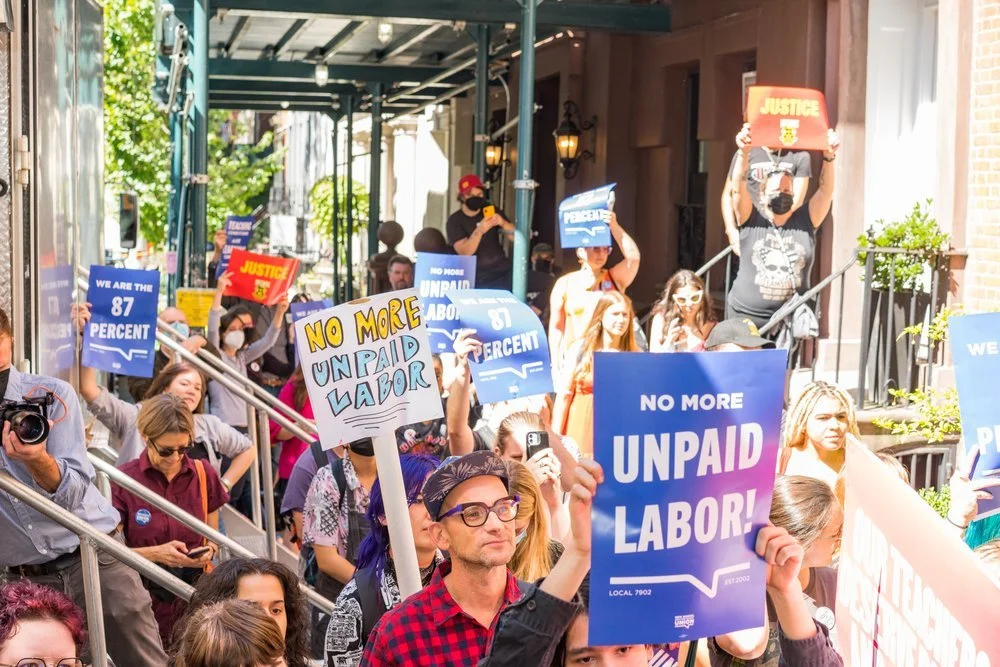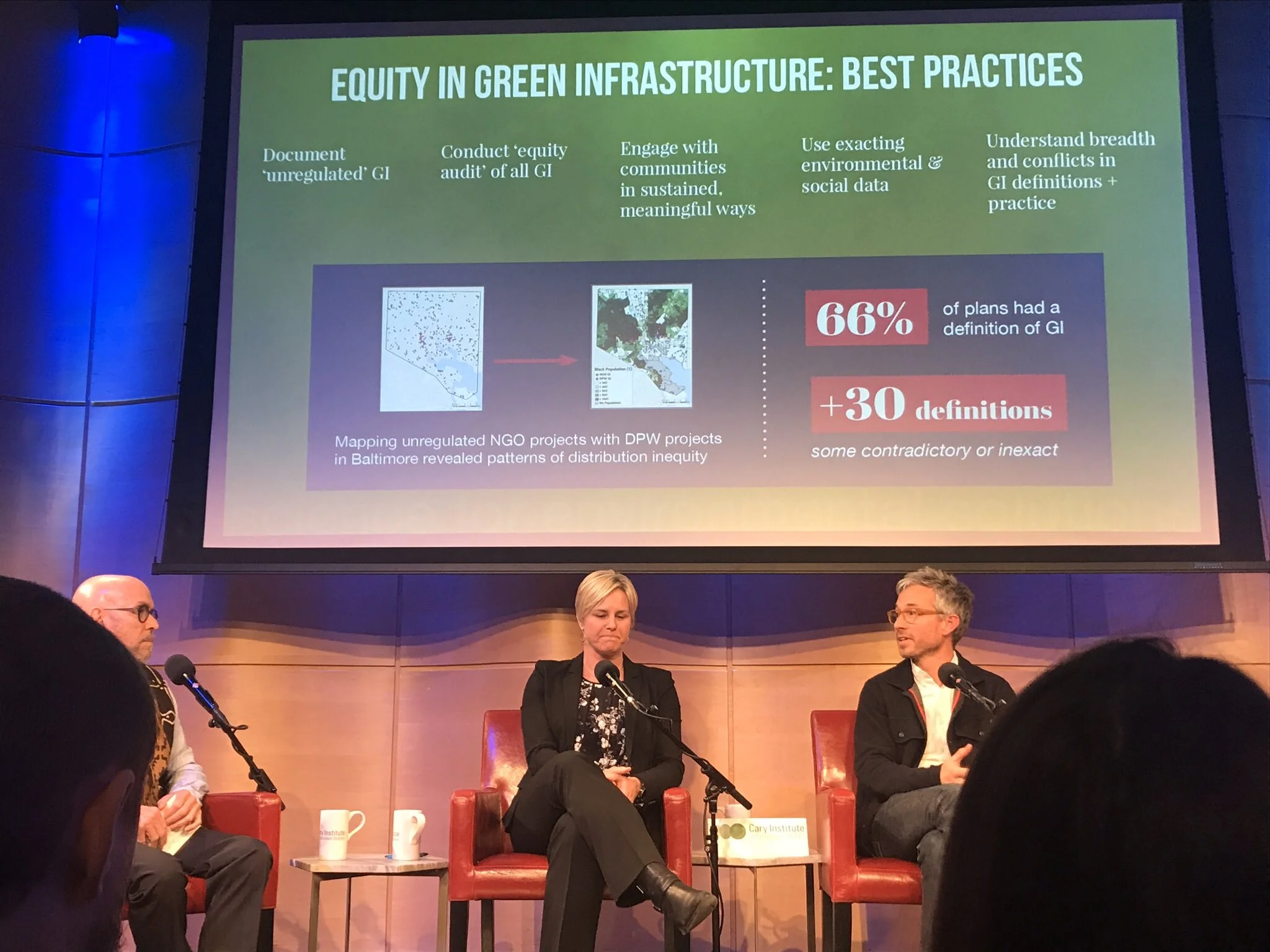WASHINGTON (August 8, 2023) – The Tishman Environment and Design Center at The New School, the Center for the Urban Environment of the John S. Watson Institute for Urban Policy and Research at Kean University, the New Jersey Environmental Justice Alliance (NJEJA), and the Center for Earth, Energy and Democracy, along with 18 environmental justice and 9 allied organizations are submitting public comments today on the Environmental Protection Agency (EPA)’s proposed carbon pollution standards for coal and new natural gas fired power plants.
Read MoreAn article by Dr. Ana Baptista, Associate Professor and co-director of the Tishman Center, was recently published in the open-source book Toxic Heritage: Legacies, Futures, and Environmental Injustice (edited by Elizabeth Kryder-Reid and Sarah May).
Dr. Baptista’s chapter “Environmental Justice Tours: Transformative Narratives of Struggle, Solidarity, and Activism” reflects on the power of Environmental Justice (EJ) tours to symbolically and concretely counteract the marginalization of communities that live in frontline EJ communities.
Read MoreDr. Ana Baptista, co-director of the Tishman Center, has recently been featured on the Resources Radio podcast with host Margaret Walls. In Episode 219, “Environmental Justice and the Cumulative Impacts of Pollution”, Ana breaks down the definition of “cumulative impacts”, why they are a particularly tough problem for overburdened communities to combat, and how environmental justice movements have successfully pushed for greater cumulative impacts legislation in recent years.
Read MoreAs we enter into the fourth week of the part-time faculty strike at The New School, the staff and faculty of the Tishman Center reflect on this critical moment and what it means for us as a Center that works to build community and support social justice movements.
Read MoreNew York faces severe challenges posed by climate change including dangerous heat waves and flooding from sea-level rise. The New York City Panel on Climate Change (NPCC), founded in 2009, is an independent group that assesses climate and environmental risks to NYC and recommends changes in an advisory report, much like the United Nations’ Intergovernmental Panel on Climate Change (IPCC) .
Read MoreIn Fall ‘19, faculty grants were awarded to support four projects related to the Tishman Center’s mission. One of those projects, “Developing Milano’s ‘Whole Earth’ Curriculum” was led by Leonardo E. Figueroa Helland (Milano/EPSM Faculty), and Mindy Fullillove (Milano/Urban Policy Faculty). As part of the project, a task force was created to investigate how the New School can reexamine its curriculum with a focus on climate justice, as well as to evaluate the school’s contribution to climate justice and its role in the greater community.
Read MoreOn October 26th, 2020, Dr. Laura-Anne Minkoff-Zern, Associate Professor and Program Director of Food Studies at Syracuse University, spoke about her recent book “The New American Farmer: Immigration, Race, and the Struggle for Sustainability'' (MIT Press, 2019) in on an online talk hosted by the Food Studies Program at The New School. The event was organized in connection with faculty member Kristin Reynolds’ Food and the Environment course, and there were more than 120 participants from across the United States in attendance. In this short piece, we include a brief summary of the book’s key arguments and reflect on its relevance for the study of food and sustainability.
Read MoreEarlier this month, Ana Baptista, Director of the Tishman Center and Chair of Environmental Policy and Sustainability Management program, gave a Congressional briefing in front of the House Committee on Energy and Commerce about the impacts of the COVID-19 pandemic on environmental justice communities.
Read MoreApril is normally the busiest month for the Tishman Center, as the variety of programming focused on Earth Day that we have spent several months developing comes to life on campus. This year, however, in light of COVID-19, the Tishman Center, along with the rest of the world, had to rapidly readjust and find ways to transition towards a virtual format to ensure that we keep our community safe but still get a chance to connect.
Read MoreWhile we live in an era that will most likely be shaped by the climate crisis, right now the focus is on coronavirus, which has turned the world into a very different place in a very short time. However, climate change is not sitting down and waiting patiently until we’re done dealing with the coronavirus. It continues to be an existential threat to humanity, even if short-term decrease in activity may slow it down. In a way, it is accompanying the coronavirus like a shadow, challenging us to consider it in every step of the way. The challenge, as we will see, is not only to remind ourselves that the climate crisis is here, even if we deal with another emergency, but also to learn the lessons from the coronavirus and figure out how to apply them to the fight against climate change.
Read MoreIs green infrastructure fair? How can it be developed in a way that ensures equity rather than perpetuates the profound injustices that are in the foundation of most urban areas? Those were some of the questions discussed at the Cary Institute of Ecosystem Studies event on the fairness of green infrastructure, where three panelists, including Tishman Center’s Affiliated Faculty and Director of Urban Systems Lab, Timon McPhearson, provided their takes on the biggest challenges and promises of equitable green infrastructure.
Read MoreKevin McQueen has been a part-time lecturer for the Community Development Finance Lab at the Milano school since 2011. Kevin has an extensive background in corporate and community development finance and is a partner at a national consulting firm (BWB Solutions) that specializes in impact investing strategies and nonprofit planning and governance.
The Community Develop Finance Lab course engages students in a project-based curriculum with the following components: classroom instruction, student teams, interdisciplinary engagement across the university, guest lectures, networking.
Read MoreThe Earth is facing a climate emergency. Globally, seas are rising, coastlines are eroding, weather patterns are changing, floods, droughts, and forest fires are increasing, and species extinction is rising exponentially. The climate crisis and the threat it poses to life on Earth and frontline communities are among the foremost challenges of our times. As an institution of higher education, it is essential that The New School equip students and faculty with the knowledge, skills, and capability to respond to the challenges ahead.
Read MoreBrian McGrath, an Associate Director of the Tishman Center and Professor of Urban Design at Parsons, recently co-authored a book titled Patch Atlas, which is a new tool for mapping urban land cover that integrates design principles and ecological knowledge for understanding cities as complex, patchy, and dynamic systems. McGrath also co-authored an article in Science for the Sustainable City which presents key findings and insights from over two decades of research, education, and community engagement in the acclaimed Baltimore Ecosystem Study.
Read MoreHumanities Action Lab is a coalition of universities, including The New School, issue organizations, and public spaces in 23 cities that collaborate to create community-curated projects on urgent social issues. This collaboration between students and community organizations culminated in an exhibition that will travel among the participating communities for two years.
Read More












![[Re-Post] Climate Emergency Teach-In](https://images.squarespace-cdn.com/content/v1/5d14dab43967cc000179f3d2/1581548469565-0H4RSSYRXY4LZK9UNGZV/Screen+Shot+2020-02-12+at+4.23.55+PM.png)



